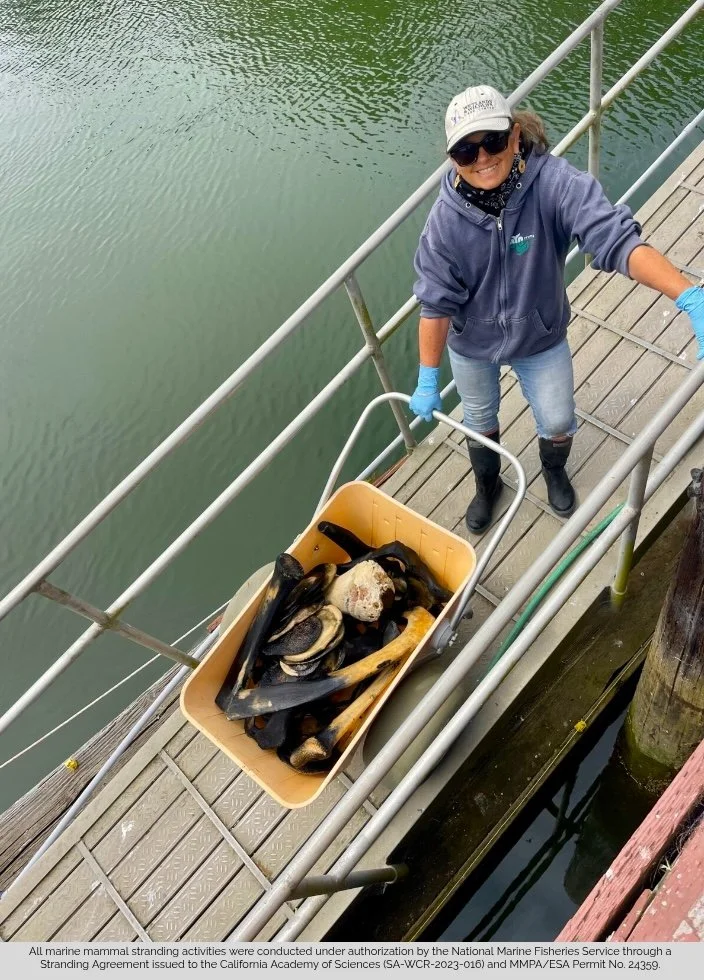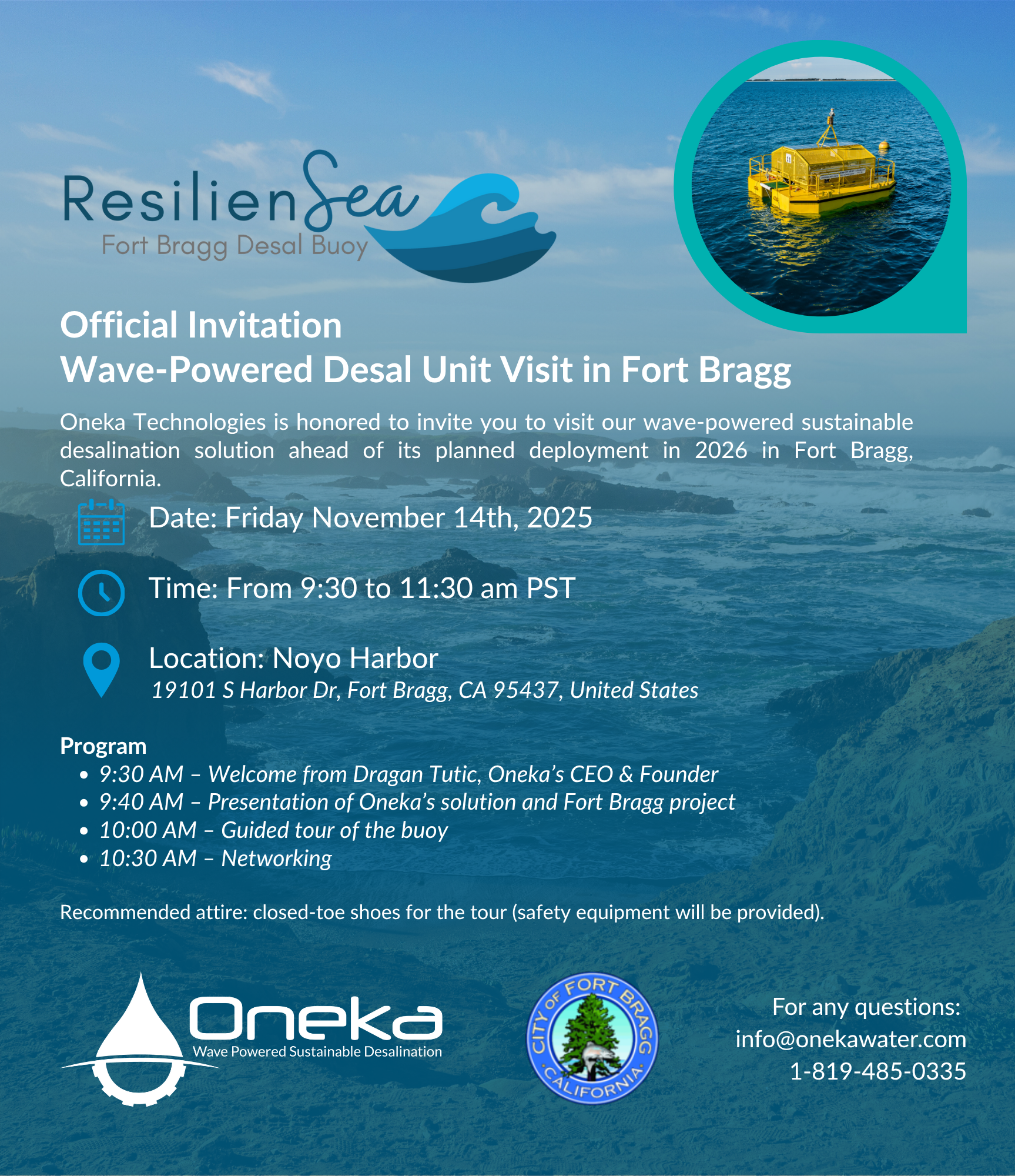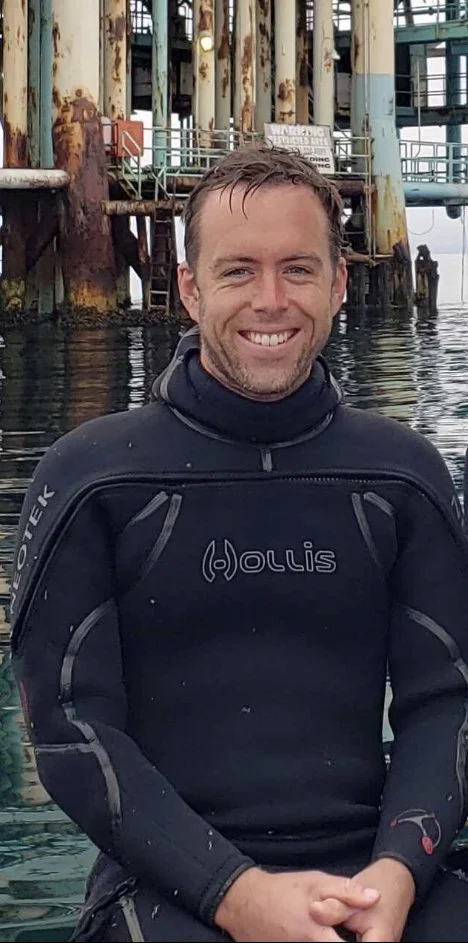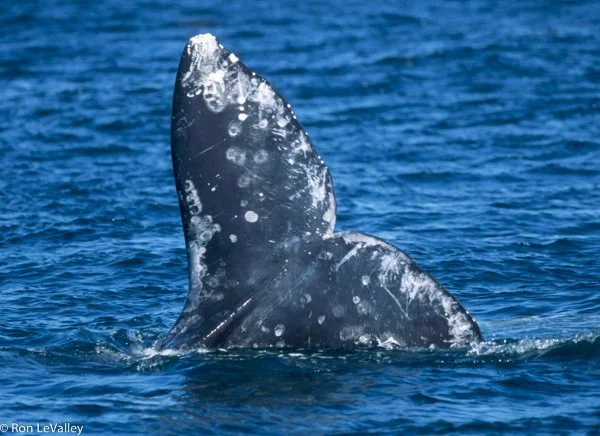
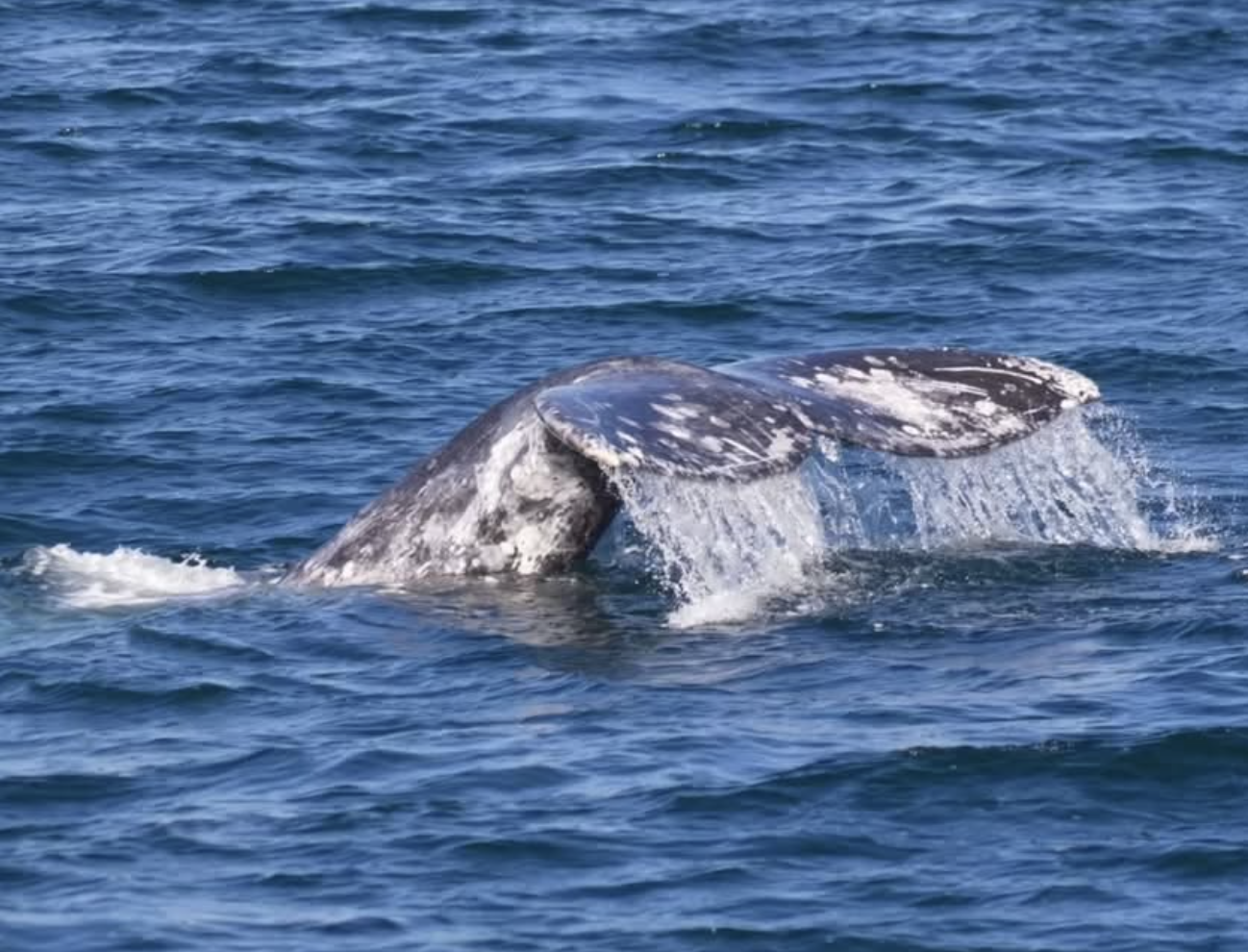
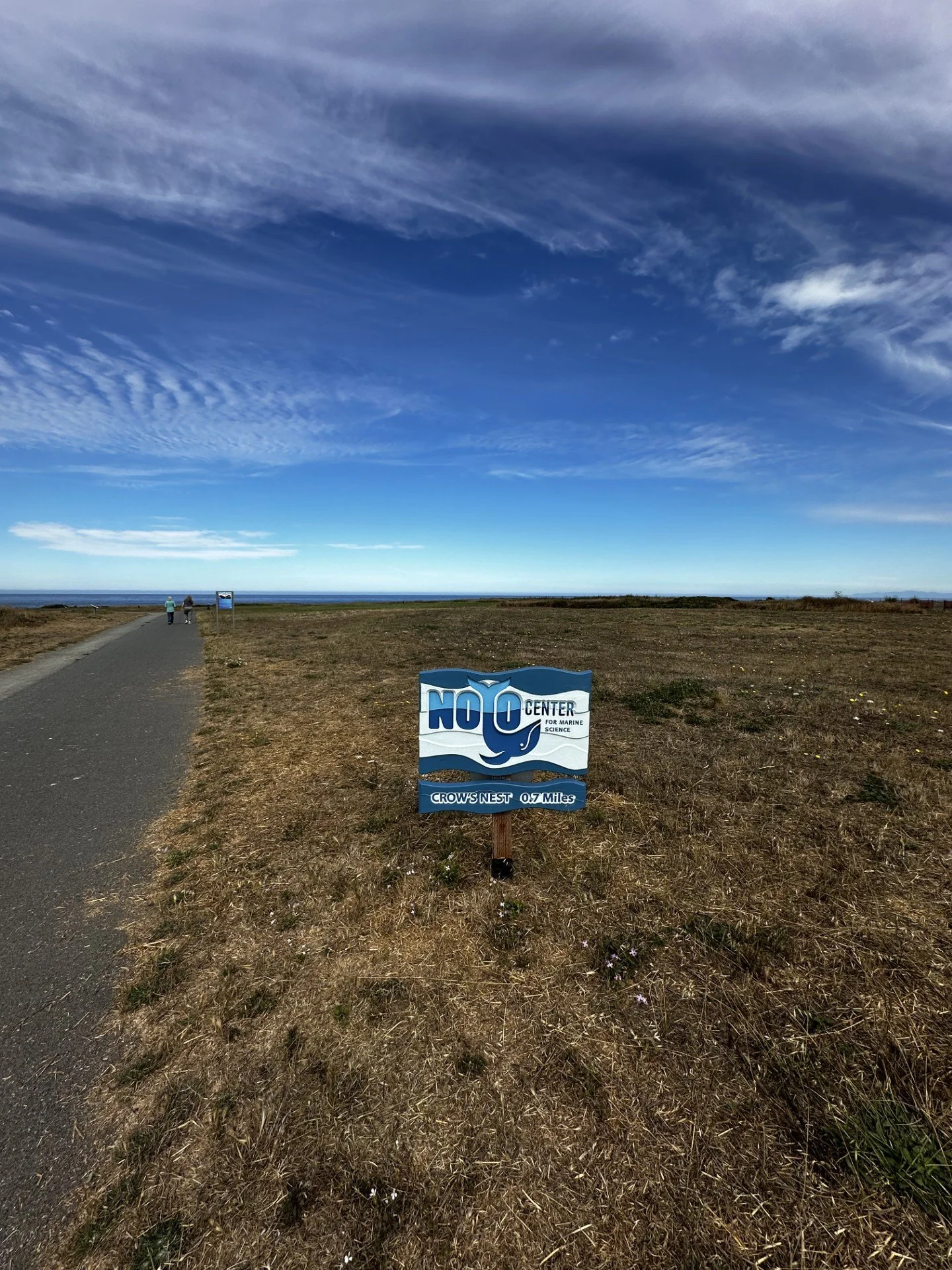
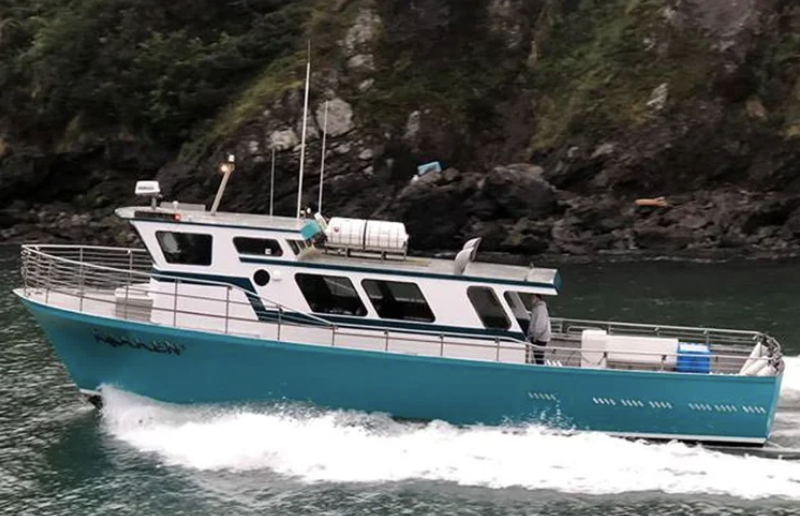
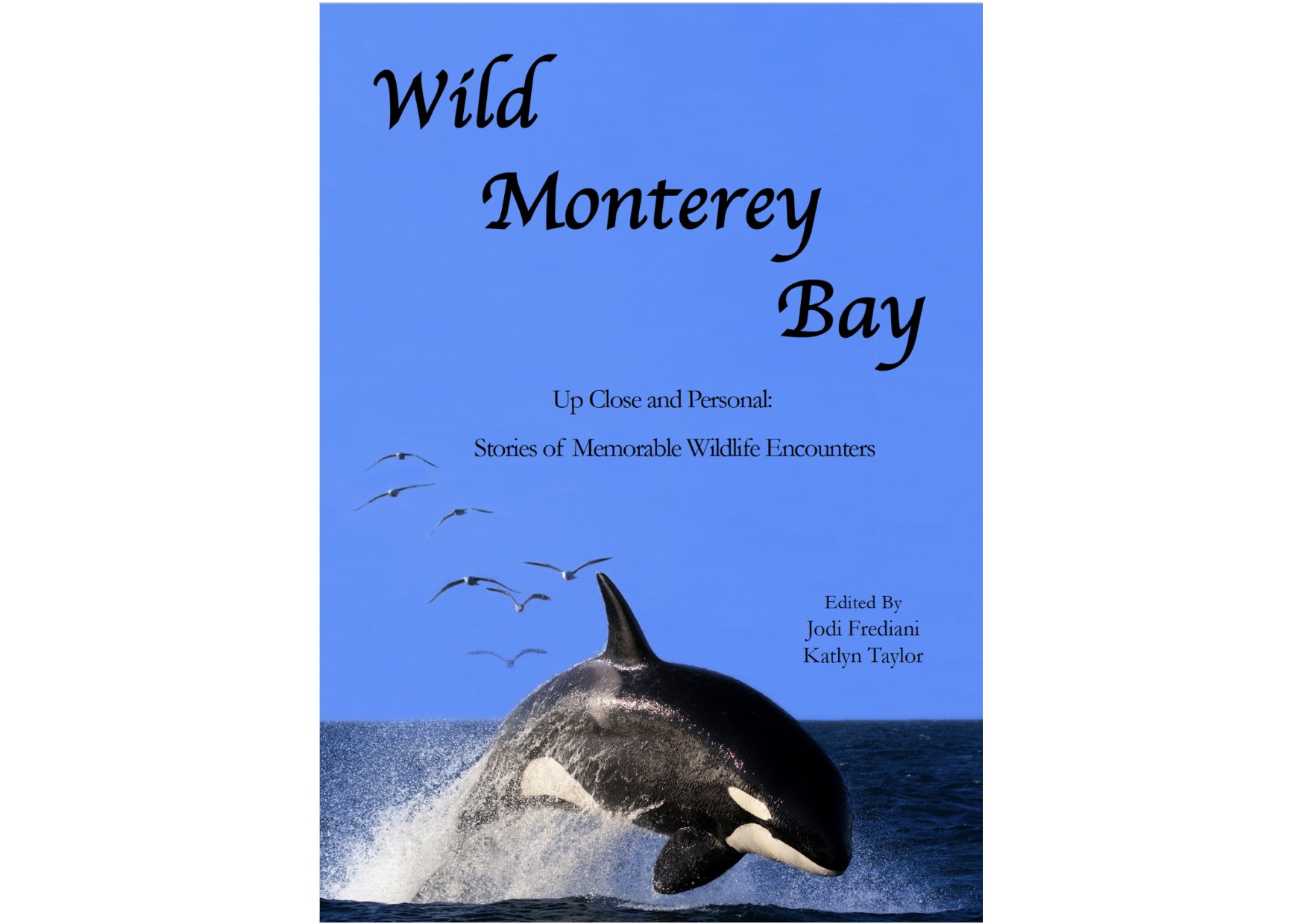
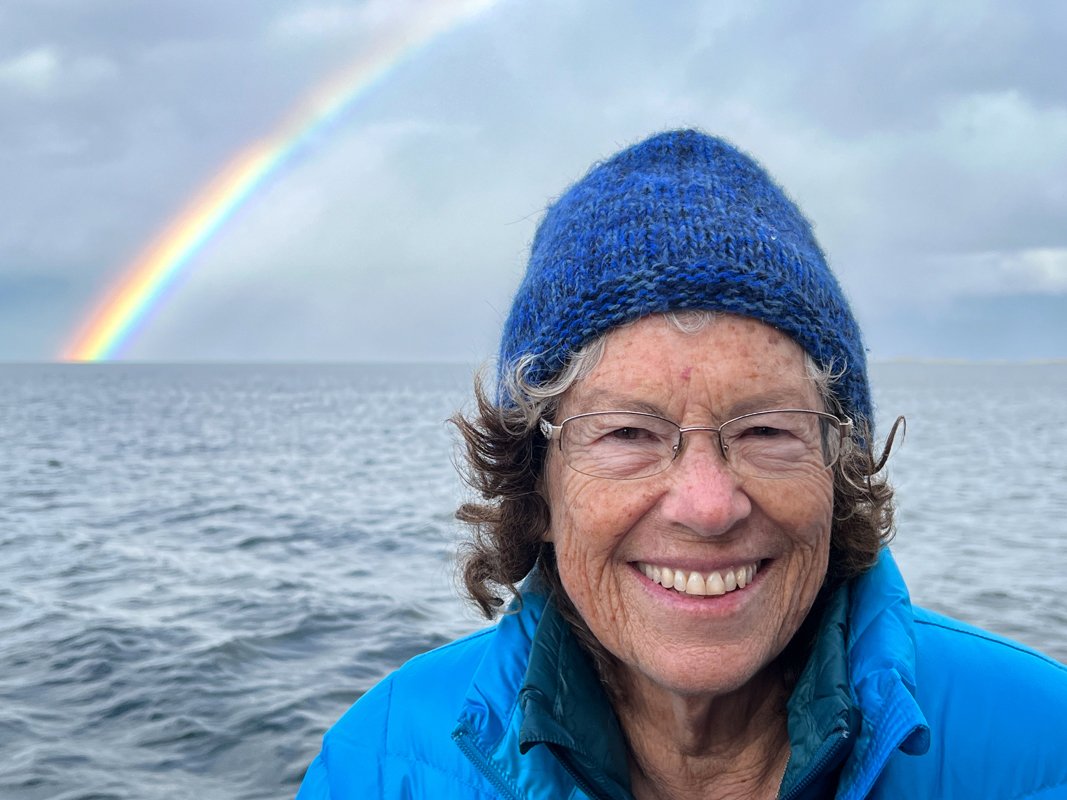

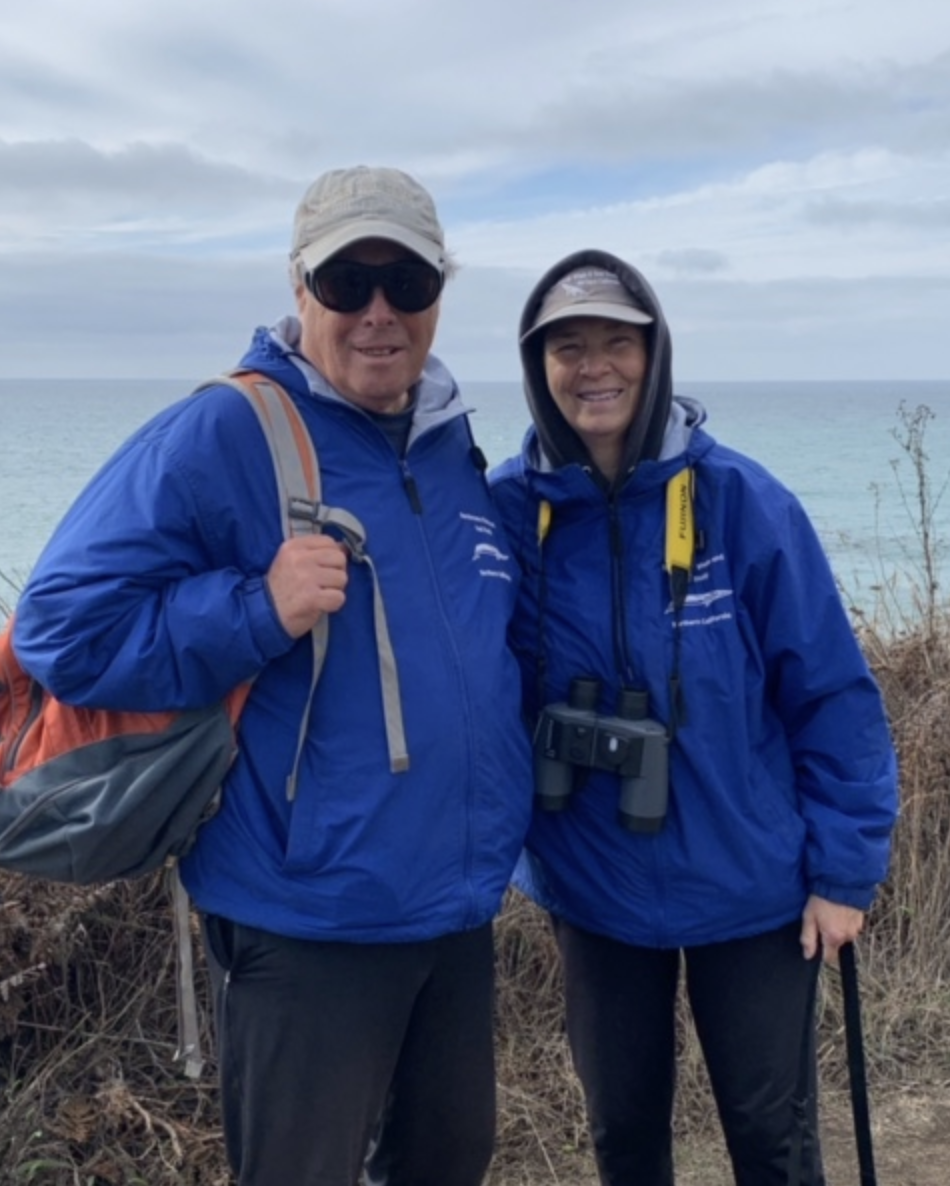

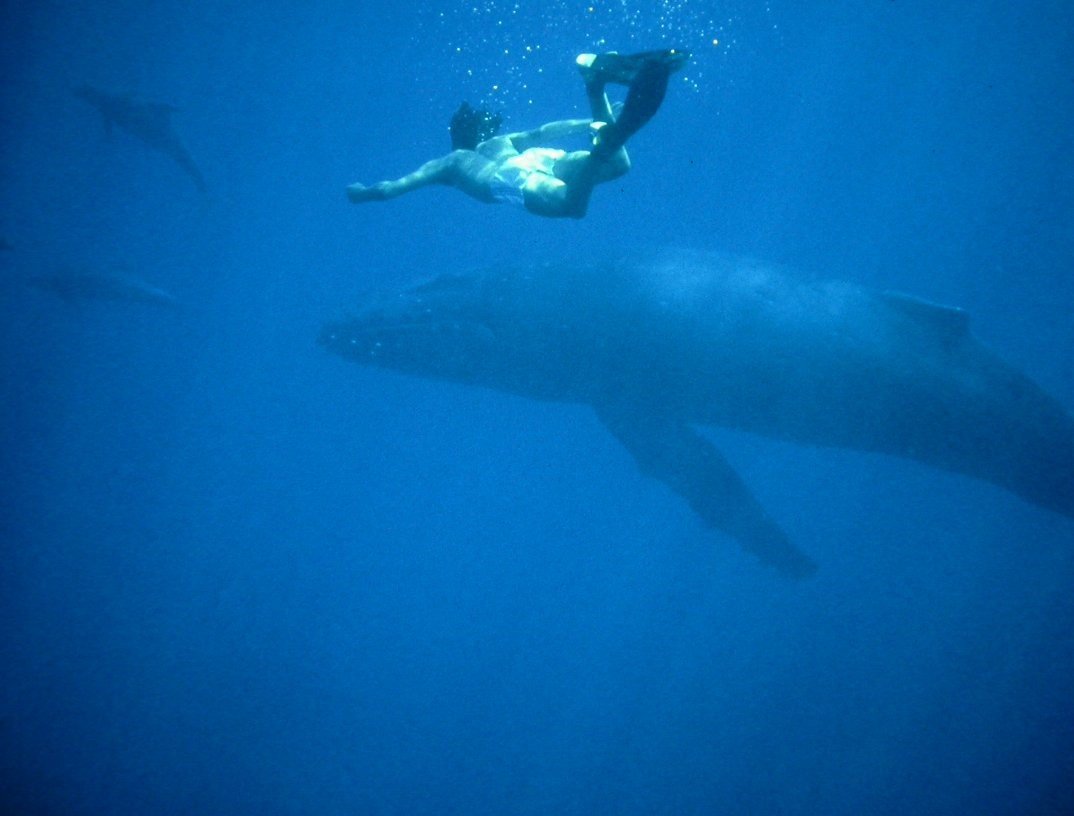
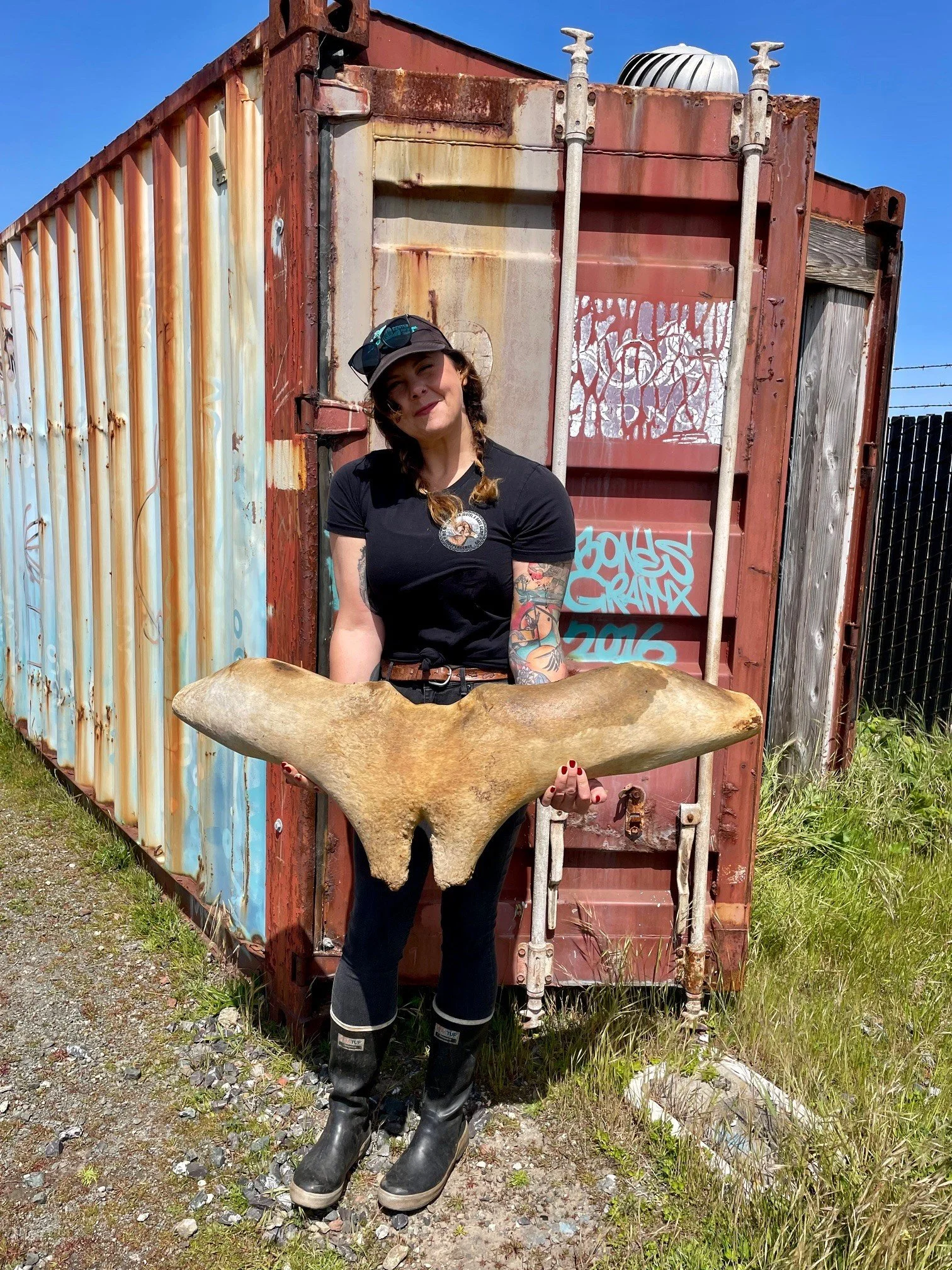
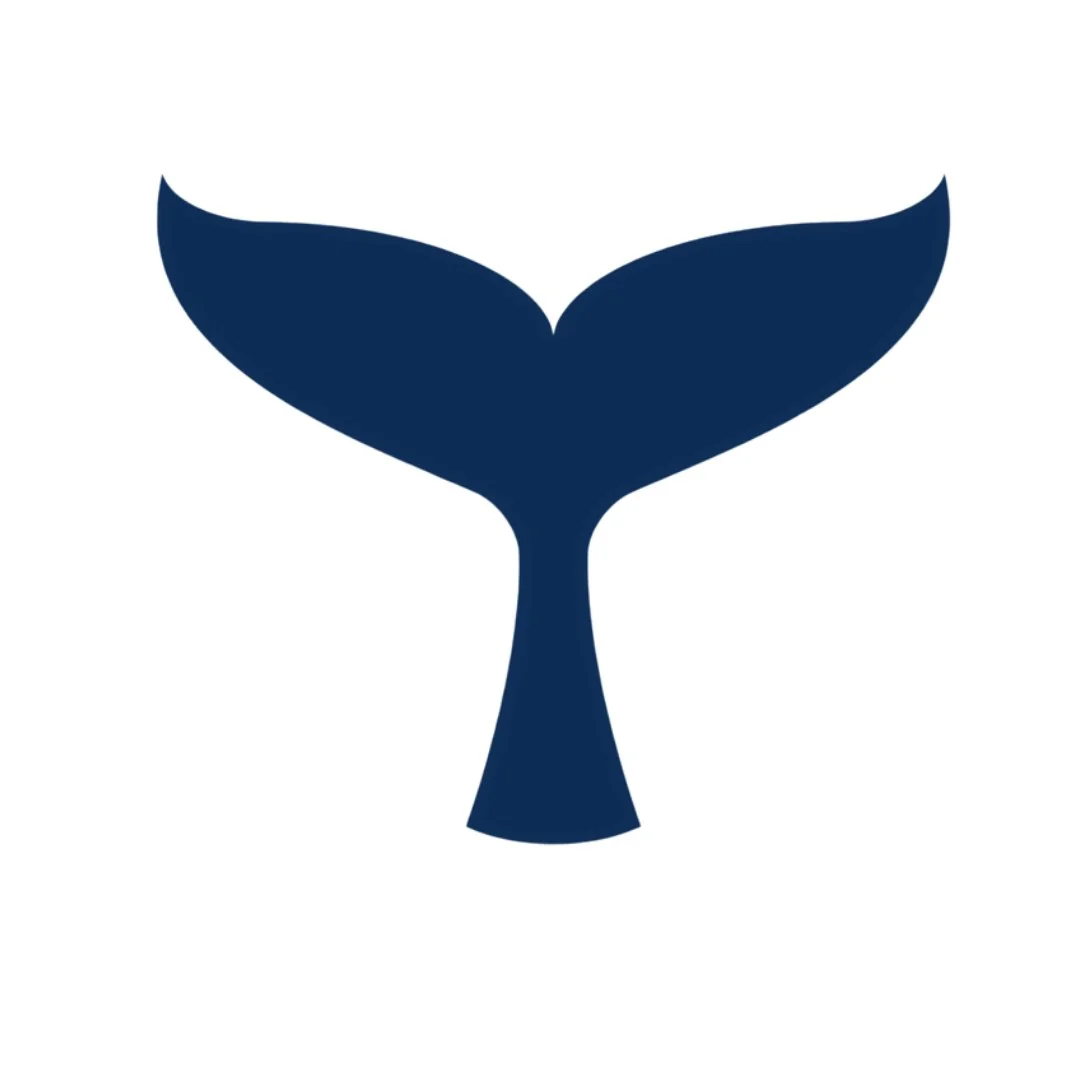
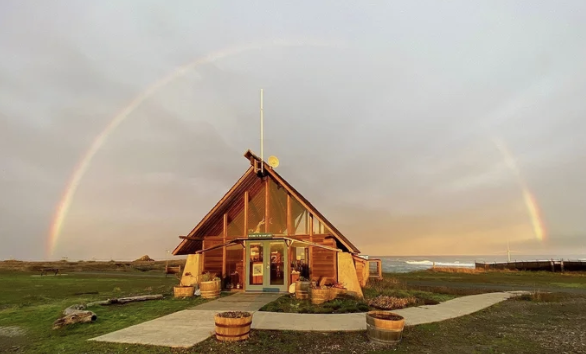
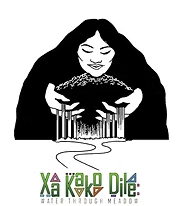
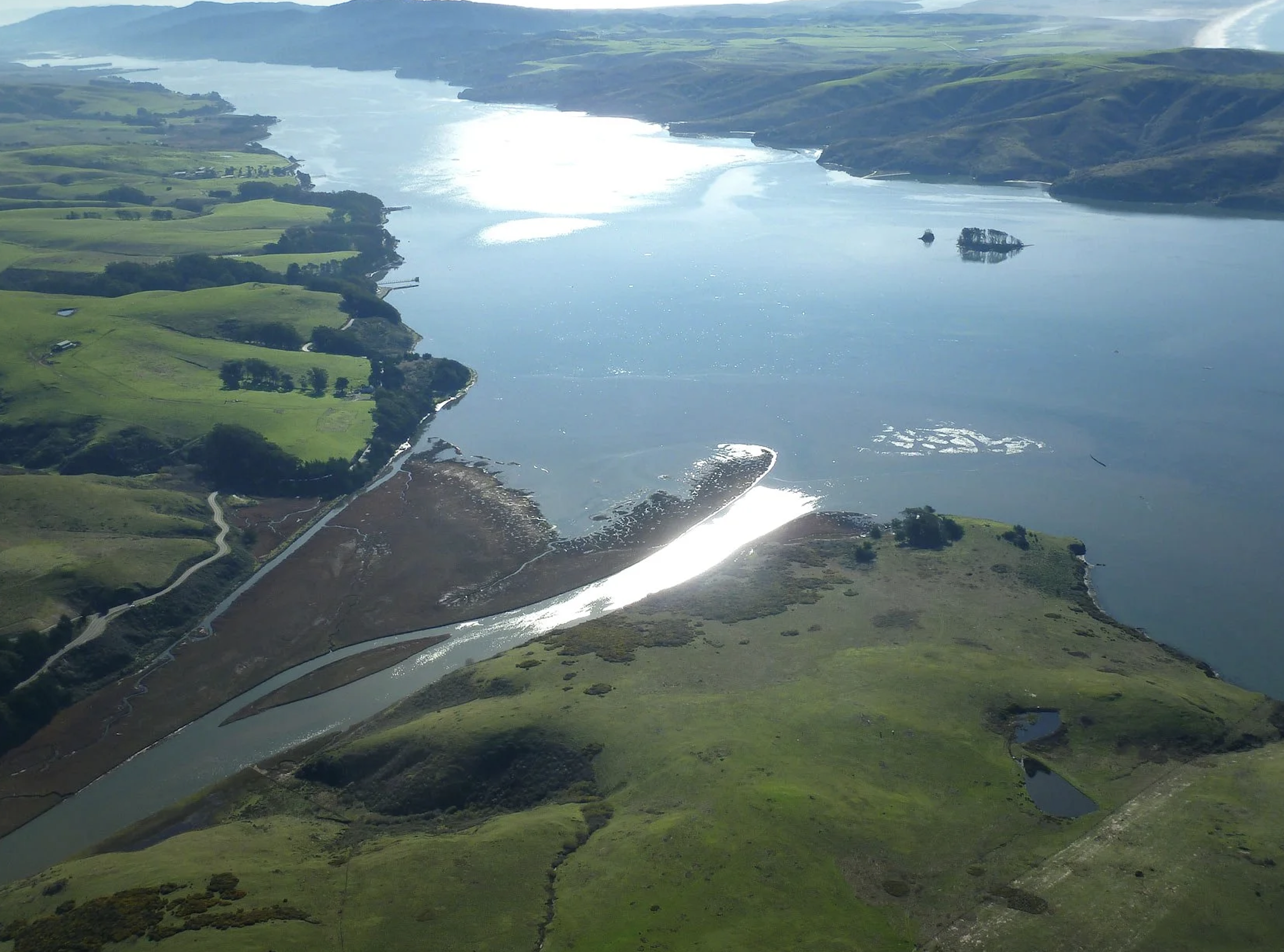
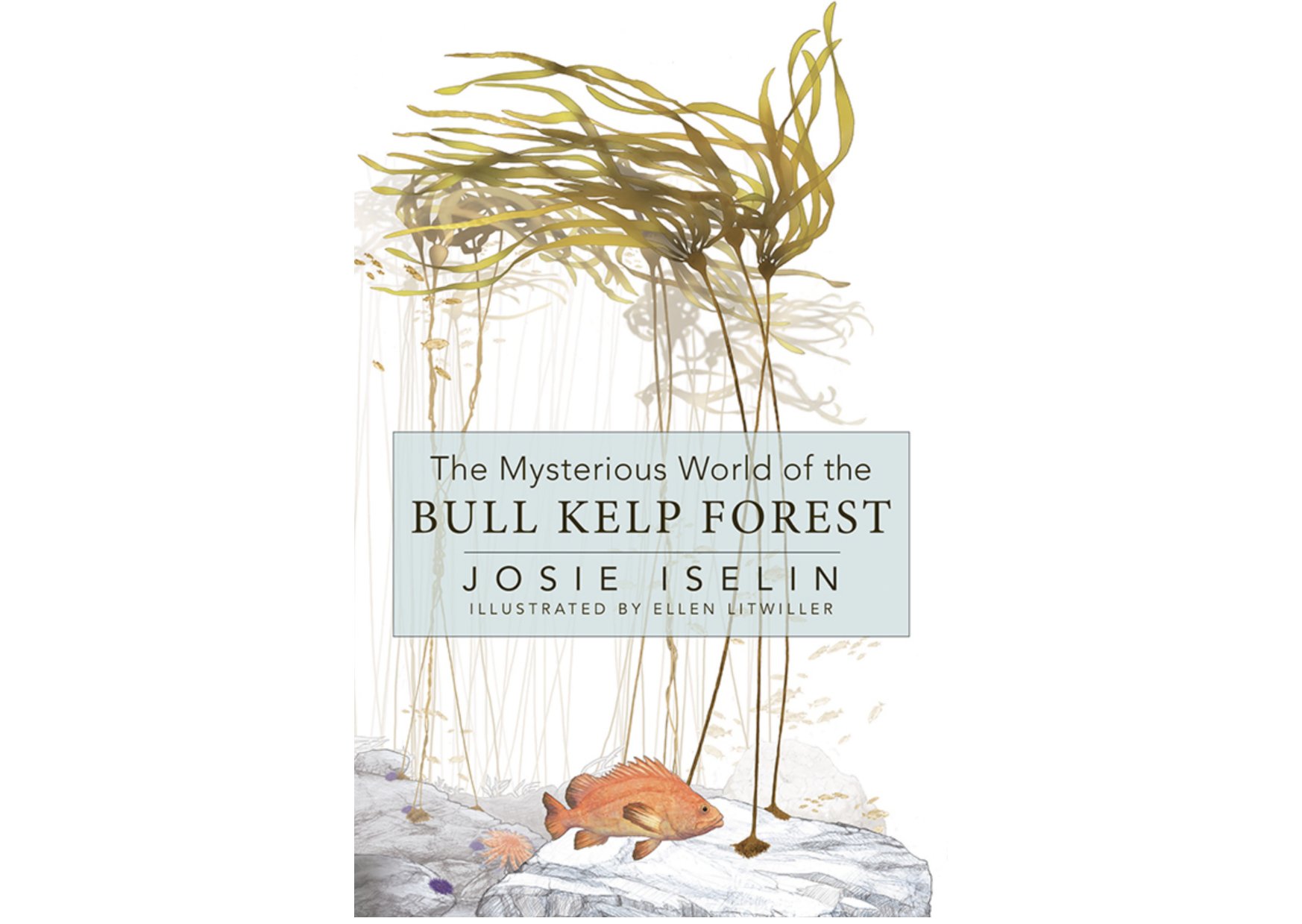
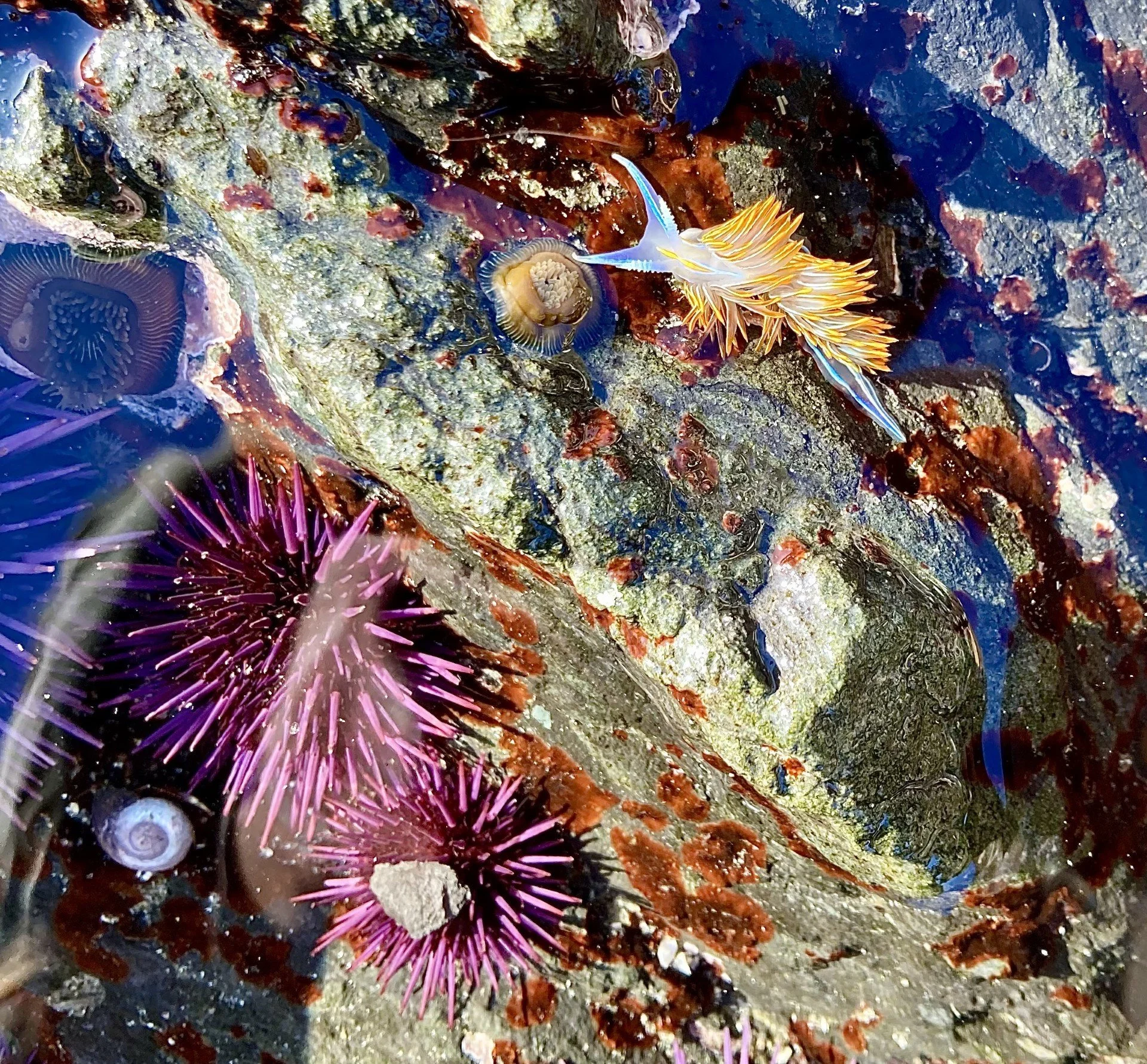
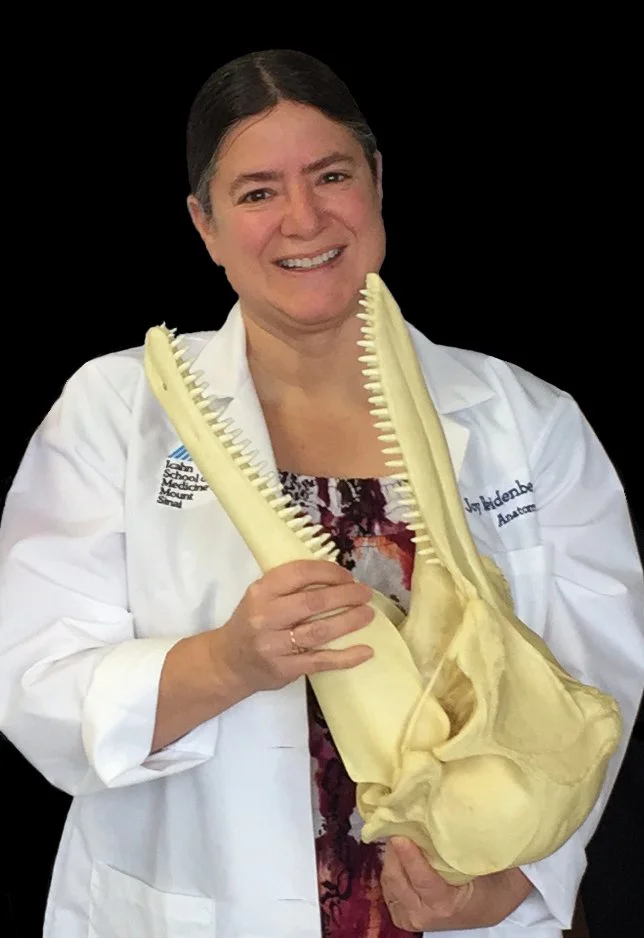

The Last Forests Project Film Screening
Film Screening: The Last Forests Project
Thank you to everyone that joined us for a special screening of The Last Forests Project,
and to filmmakers Marco Mazza, Steve Page and Abbey Dias, for donating the proceeds from the evening to the Noyo Center for Marine Science.
For thousands of years, prolific Kelp Beds have spanned across the Northern California coastline, providing some of the most beautiful and biologically diverse and productive ecosystems on earth. Between 2014 and 2018, a series of prolonged environmental stressors and imbalances led to the loss of over 90% of kelp forests between San Francisco and Oregon.
The Last Forests Project is a visual journey through the causes and effects of this ecosystem collapse, as well as the scientific and community efforts in place to help bring back our kelp forests. Our mission is to be the eyes and voice for the forests that we cannot see fall. We hope to inspire change in our coastal communities, and create a legacy of ocean activism.
Noyo Center Science Social: What Washed Ashore in 2025
What Washed Ashore in 2025
Noyo Center Marine Field Station
5:00 Happy Hour
(Mulled wine, warm drinks and snacks)
6:00 Presentation Begins
Join us at the Noyo Center Marine Field Station with Sarah Grimes, Marine Mammal Stranding Coordinator for Noyo Center for Marine Science, who will give us a report of WHAT and WHO has washed ashore in 2025.
Following the presentation there will be an opportunity to ask questions and learn more about the work of the West Coast Marine Mammal Stranding Network.
This event will be available both in person and online. ZOOM REGISTRATION
There is no charge for this event, but a suggested $10 donation at the door (or online) to help support these events is encouraged.
Thank you for your support! DONATE here.
Noyo Center Marine Field Station
32430 N. Harbor Drive
Fort Bragg, CA 95437
All marine mammal stranding activities were conducted under authorization by the National Marine Fisheries Service through a Stranding Agreement issued to the California Academy of Sciences (SA-WCR-2023-016) and MMPA/ESA Permit No. 24359.
Noyo Pelagics Deepwater Pelagic Birds: Full Day Trip
Deepwater Pelagic Birds
Trips to Sea on the Kraken
Friday, November 21, 2025
7:30 AM; full day trip(7-8 hours)
Cost: $185
Departure: Anchor Boats Charters
Noyo North Harbor at Noyo Fish Company
Join Bird and Marine Mammal experts from the Audubon Society and the Noyo Center for Marine Science for Bird and Whale Watching Trips aboard the Kraken of Anchor Charter Boats! Reservations Required.
Kraken Captain Richard is reporting recent whale sightings including Humpbacks and Fin Whales. Dolphins often ride the bow of the boat, too!
ResilienSea: Fort Bragg Desal Buoy Community Event
Science Talk Recording: Wave Powered Sustainable Desalination Systems
In this presentation Oneka Technologies Chief Commercial Office Shawn Meyer-Steele, who is presenting information about the development of a system that turns seawater into fresh water in an innovative and sustainable way by harnessing wave energy.
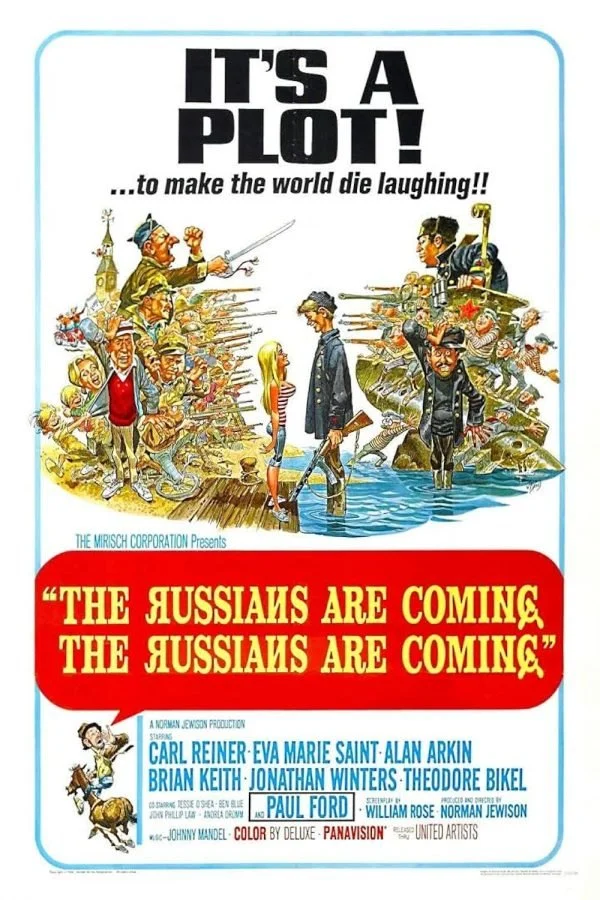
60th Anniversary Reception & Screening of “The Russians are Coming, The Russians are Coming”
60th Anniversary Reception & Screening of
“The Russians are Coming, The Russians are Coming”
Sunday, November 9, 2025
Noyo Center Field Station and Coast Cinemas
Brace yourself for a comedic “invasion” on the coast as we celebrate the 60th anniversary of The Russians are Coming, The Russians are Coming, a Cold War classic shot almost entirely on the Mendocino Coast.
2pm-3:30pm: Reception and Pop-Up Exhibit: Free Admission
Noyo Center for Marine Science’s Field Station (used as a filming location) at 32430 N. Harbor Drive in Fort Bragg. Enjoy snacks and drinks as you meet local residents who were extras during the film’s production. Don’t miss the Kelley House Museum’s pop-up exhibit full of memorabilia, which will be on display at the reception and includes historic photos of the premiere at Coast Cinemas. Free admission.
4pm-6pm: 60th Anniversary Screening of
The Russians are Coming, The Russians are Coming: Tickets $15
Coast Cinemas, 135 S. Franklin St. Fort Bragg. During production, the Fort Bragg Advocate News described the comedic plot as, “the accidental grounding of a Russian submarine because its skipper wanted to get a closer look at the United States. The sub gets hung up on a sandbar and the plot unfolds as the crew determines ways of getting away at the same time Americans are mistaking the accident as an invasion.” The cast included Carl Reiner, Alan Arkin, Eva Marie Saint, Jonathan Winters, Brian Keith, and Ben Blue, plus plenty of locals.
The event is jointly hosted by the Mendocino Film Festival, the Kelley House Museum, and the Noyo Center for Marine Science.
Dine Out for Science: Cafe One
Dine-Out for Science at Cafe 1
Wednesday, November 5, 2025
8 a.m. - 2:30 p.m.
753 N Main St, Fort Bragg
Enjoy breakfast or lunch on November 16 and help support the Noyo Center for Marine Science by dining out at Cafe One. The restaurant will donate 15% of sales to the Noyo Center to support our ongoing conservation, research, and education.
Café One is dedicated to using organic and non-GMO foods. They offer vegetarian, vegan, and gluten-free options in addition to a full menu of delicious food. Order in or online for takeout. The restaurant teamed up with us back in June and we're excited to be partnering again. Don't miss this chance to enjoy one of the best meals on the coast and support the Noyo Center at the same time.
Noyo Pelagics Bird and Whale Watching Trips to Sea: Half Day Trip
Noyo Pelagics Bird and Whale Watching Trips to Sea on the Kraken
Monday, November 3, 2025
10:00 AM; half day trip(3-4 hours)
Cost: $125
Departure: Anchor Boats Charters
Noyo North Harbor at Noyo Fish Company
Join Bird and Marine Mammal experts from the Audubon Society and the Noyo Center for Marine Science for Bird and Whale Watching Trips aboard the Kraken of Anchor Charter Boats! Reservations Required.
Kraken Captain Richard is reporting recent whale sightings including Humpbacks and Fin Whales. Dolphins often ride the bow of the boat, too!
French Toast Breakfast in Noyo Harbor: THIS EVENT HAS BEEN CANCELLED
French Toast Breakfast
Sunday, November 2, 2025
THIS EVENT HAS BEEN CANCELLED
Noyo Center Marine Field Station
Noyo Pelagics Deepwater Pelagic Birds & MAmmals: Full Day Trip
Deepwater Pelagic Birds & Mammals
Trips to Sea on the Kraken
Friday, October 31, 2025
7:30 AM; full day trip(7-8 hours)
Cost: $185
Departure: Anchor Boats Charters
Noyo North Harbor at Noyo Fish Company
Join Bird and Marine Mammal experts from the Audubon Society and the Noyo Center for Marine Science for Bird and Whale Watching Trips aboard the Kraken of Anchor Charter Boats! Reservations Required.
Kraken Captain Richard is reporting recent whale sightings including Humpbacks and Fin Whales. Dolphins often ride the bow of the boat, too!
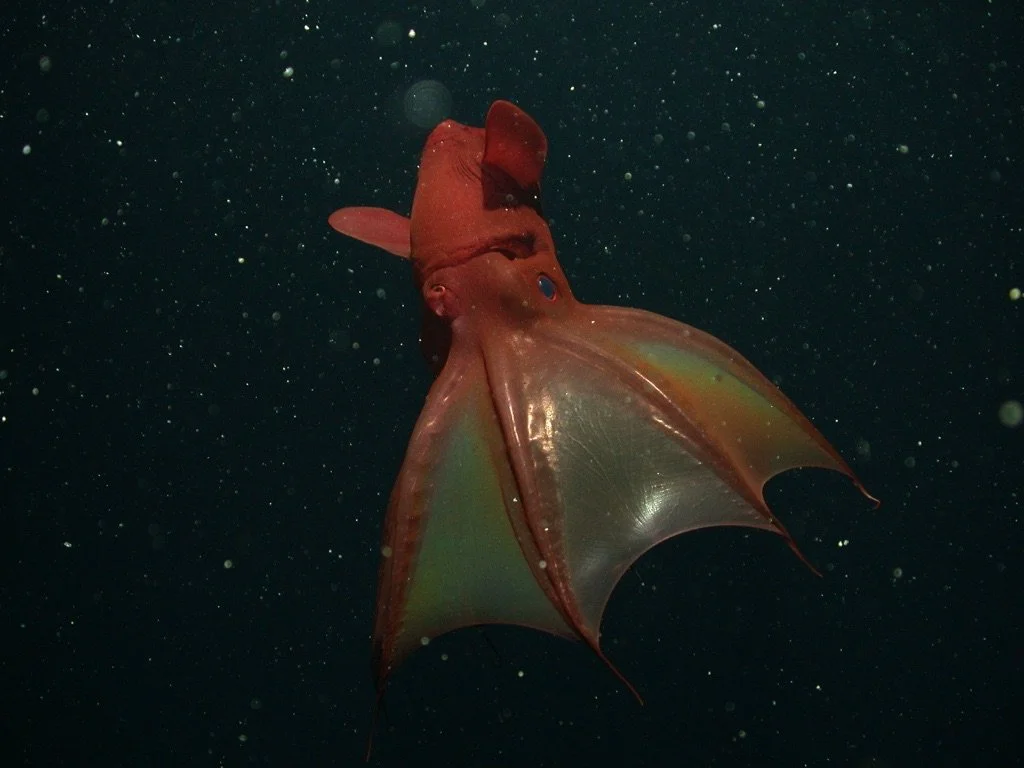
Noyo Center Halloween Party & Science Social: The Weird and Wonderful: Ocean Oddballs and Peculiar Partnerships
Costumes
Encouraged!
The Weird and Wonderful:
Ocean Oddballs
and Peculiar Partnerships
Guest Presenter: Brianna Zuber
Mendocino College Biology Department
Thursday, October 30, 2025
Noyo Center Marine Field Station
32430 N. Harbor Dr., Fort Bragg
5:00 Halloween Happy Hour
6:00 Presentation Begins
Dive into the strange and spectacular world of marine life! This talk will explore the biology behind some of the ocean’s most curious creatures and unexpected partnerships. Perfect for spooky season, learn about vampire squid, tongue-eating isopods, the slimy hagfish, unwanted visitors, ghost reefs, zombie fish, and much more!
Brianna Zuber was born and raised in Georgia. She stayed in Georgia to attend a small college where she took classes like Ecology, Conservation Biology, and Ichthyology, fell in love with working with fishes, and earned a degree in Ecology and Field Biology. After that, she received a Master’s degree in Biology and then finished her Ph.D. in Environmental Sciences. All along the way she studied fishes, ecology, and the environment. She moved to Ukiah in 2016 to work at Mendocino College where she is currently a Biology instructor and teaches courses in Marine Biology, Zoology, and Botany. She lives in Willits with her husband and their three awesome dogs.
There is no charge for this event
but please let us know you are coming:
Vampire Squid Photo: MBARI
Noyo Center Science Social and Presentation with Katherina Audley: From Mexico to Mendocino: Unlocking the Lives of Humpbacks
From Mexico to Mendocino:
Unlocking the Lives of Humpbacks
Insights from 12 years of humpback whale research, with new footage and discoveries shared by Katherina Audley
Tuesday, October 21, 2025
Noyo Center Marine Field Station
Katherina will give a 45-minute talk with Q&A, sharing never seen before footage of humpbacks in action—ballet-like movements, surprising encounters with sea turtles, dolphins, and golden cownose rays, and intimate moments between mothers and calves.
Drawing on 12 years of community-powered research in Guerrero, SW Pacific Mexico, Katherina will connect our local whales to their southern breeding grounds and show how this work has contributed to scientific understanding of humpback whales and informed policy across Mexico, the U.S., and Canada.
Don’t miss this chance to deepen your connection to these majestic creatures and the ocean we share.
This event will be available both in person and online.
There is no charge for this event, but a suggested $10 donation at the door (or online) to help support these events is encouraged.
Please let us know you are coming by registering below:
RSVP to attend in person here:
OR RSVP to attend online here:
View the Zoom recording of the program.
Katherina Audley is a National Geographic Explorer, Development Director of the Noyo Center for Marine Science, and founder of Whales of Guerrero. From 2014 to 2024, she led Whales of Guerrero, a community-powered research and education project in Guerrero, Mexico. Over that decade, the project documented humpback whales and generated new insights into their lives, while also training local community members as scientists, guides, and educators. This research has informed how governments in Mexico, the U.S., and Canada understand and protect humpback whales. She has more than 25 years of experience in marine science communication, conservation, and nonprofit leadership.
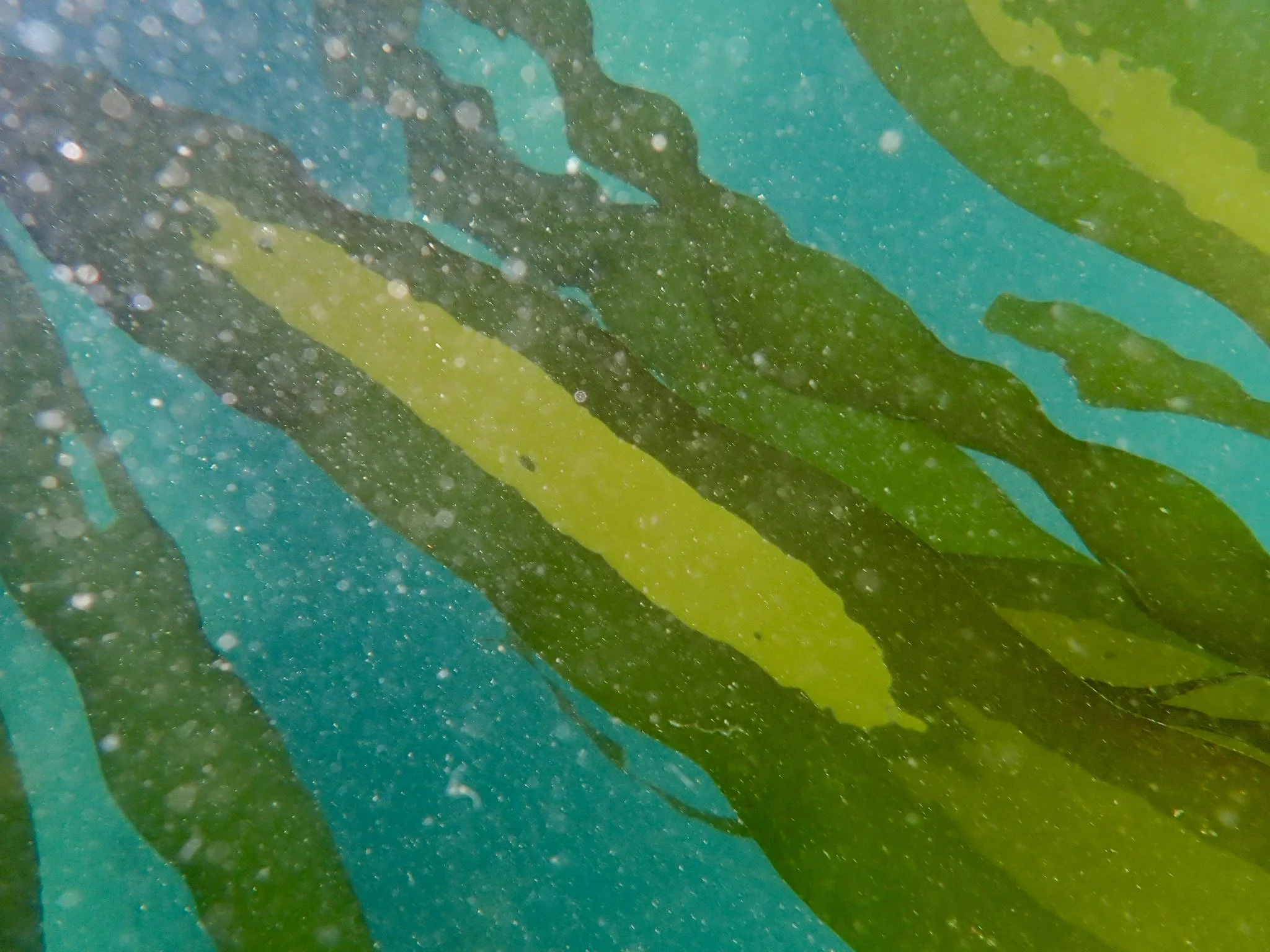
KelpFest!: Regenerative Aquaculture Panel Discussion and Seaweed Happy Hour
KelpFest!
Regenerative Aquaculture Panel Discussion
and Seaweed Happy Hour
Sunday, October 5, 2025
3:00-5:30 PM
Noyo Center for Marine Science Field Station
32430 N. Harbor Drive in Fort Bragg
Dive deeply into the topic of regenerative aquaculture with a panel discussion hosted by the Noyo Center. The program includes scientists involved with current research programs focused on purple urchins, and the latest in recovery efforts for abalone, bull kelp, and sunflower sea stars. Noyo Center Executive Director Sheila Semans will moderate the program.
Stick around after the program for Seaweed Happy Hour and meet the scientists while you enjoy a little food and drink, including some local wines from Anderson Valley’s Minus Tide Wines, North Coast Brewing Company beer, and non-alcoholic offerings.
There is no ticket price for this event, but a suggested donation of $10 or more helps support our ability to bring you these programs.
Guest Speakers
-
Luke’s research interests broadly involve the development of sustainable aquaculture. Specifically, he is working with industry to apply advanced and emerging technologies to help solve issues limiting aquaculture growth. He has primarily used biotechnology to study physiological systems in marine organisms including reproduction, biomineralization, toxicology and nutrition.
Economically incentivizing the harvest of wild purple urchins in aquaculture can help reduce the urchin population and restore kelp forests. However, the urchins in barrens have limited economic value due to their starved state. Aquaculture can help fatten the roe in the urchins and increase their value. To do this a team of researchers, urchin divers, aquaculture farmers, and community members have been working on developing diets optimized for urchin roe growth as well as determining the ideal culture conditions to increase the quality of the roe year-round. Together this research is hoped to provide needed technology and information to jumpstart urchin ranching aquaculture and support kelp recovery.
-
Elora López-Nandam is an evolutionary biologist with research interests in the ecology, evolution, and conservation of marine ecosystems. She has used genetics to address a wide range of topics in the ocean, from sea cucumber fisheries in Fiji to coral bleaching in American Samoa. Currently, she combines genomics with aquarium husbandry for important marine animals like corals and sea stars.
Since 2022, the California Academy of Sciences has been optimizing methods to spawn and raise echinoderms, and since 2024, we have led efforts to spawn and raise the first two cohorts of sunflower sea stars in California aquariums. The interdisciplinary team includes the husbandry experts of Steinhart Aquarium and the research expertise of the Academy's biodiversity science division. By combining husbandry experiments with genetics and statistical analysis, we aim to build best practices for conservation breeding programs worldwide. The success of the first two sunflower sea star cohorts has opened new doors for the future of this species in California.
-
Dan serves as the Director for Oceans and Aquaculture with the Kashia Band of Pomo Indians, Indigenous peoples of the Sonoma Coast in Northern California. On behalf of Kashia, Dan leads several projects working to advance kelp forest restoration and Tribal aquaculture with academic, government, and non-profit partners on the West Coast of the USA. In addition to his Tribal affiliation, Dan also holds an appointment as a research scientist at the UC Davis Bodega Marine Laboratory, and he previously worked as Lead Scientist for The Cultured Abalone Farm LLC., one of California's longest running aquaculture businesses. Dan’s work is diverse and collaborative, encompassing themes of ocean food, the conservation of biological diversity, and the sovereignty of indigenous peoples. Dan will speak about the highly collaborative red abalone captive breeding program now underway.
-
Torre has been an ecologist since he could crawl. Exploring the dirt, worms, trees, snakes, and birds in his own backyard translated very well when he decided to pursue Marine Biology at Humboldt State University. His fascination with intertidal ecology led him to pursue scientific SCUBA diving, so he could gain a deeper understanding of how coastal ecosystems work.
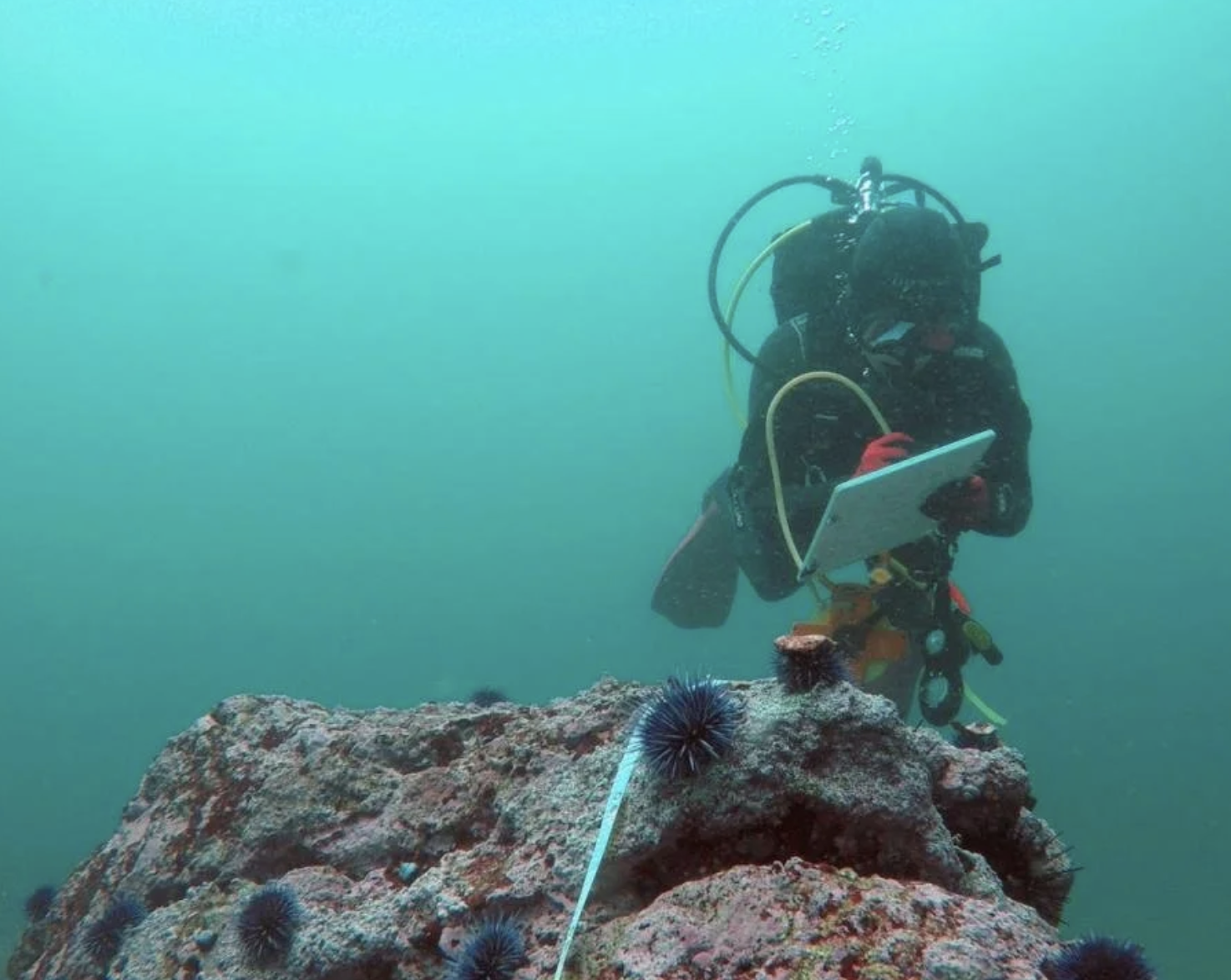
KelpFest! Special Presentation: Kelp RISES Research Group
Photo: Kelp RISES
Kelp RISES Research Group
Sunday, October 5, 2025
11:30 AM - 12:45 PM
Noyo Center for Marine Science Field Station
32430 N. Harbor Drive in Fort Bragg
Learn about the Kelp RISES research into the question: how might different kelp restoration approaches account for ongoing climate change?
This presentation focuses on the latest activities of the Kelp RISES Research Group , which explores the question: how might different kelp restoration approaches account for ongoing climate change? To this end, the group is integrating (1) social science research methods to understand human connections to and priorities for kelp systems, (2) oceanographic data and ecological field studies to understand the natural drivers of kelp resilience, and (3) a combination of bio-economic models and network analysis to identify optimal approaches and barriers to achieving the optimal outcomes. The presentation provides an overview of the project as well as recent findings from four pieces: (1) interviews to elucidate the human dimensions of the kelp ecosystem on the Mendocino Coast, (2) experiments and field observations on how freshwater input from rivers affects urchin grazing on kelp, (3) a model to explore different approaches to kelp restoration under future climate change (research that also motivates the …all dripping in tangles green… performance on Saturday), and (4) network analysis of the interactions between people and kelp forests in Mendocino and beyond. A Q&A discussion time will conclude the event.
There is no fee for this presentation, but please let us know you are coming:

Noyo Center Marine Field Station Open House
Field Station Open House
Sunday, October 5, 2025
11 AM - 3 PM
Noyo Center for Marine Science Field Station
32430 N. Harbor Drive in Fort Bragg
Tour the Urchin Ranch, a 40-foot shipping container where overabundant yet starving purple urchins are being fed in a recirculating aquaculture system to create delicious uni.
These resilient creatures are able to persist through years of starvation, but there is hope in Blue Economy circles that they can be harvested, raised to delectable plumpness, and sold commercially. Guests are also welcome to walk around the Field Station, home to our marine mammal skeleton specimen lab, and other developing research and education projects. From 11:30AM - 12:45PM, the Kelp RISES Research Group Presentation will share their findings. The open house is followed by the Ocean Aquaculture Panel Discussion and Seaweed Happy Hour Reception.
Noyo Pelagics Noyo Canyon Birds and Mammals: Half Day Trip
Noyo Canyon Birds and Mammals
Trips to Sea on the Kraken
Sunday, October 5, 2025
7:30 AM; half day trip(3-4 hours)
Cost: $125
Departure: Anchor Boats Charters
Noyo North Harbor at Noyo Fish Company
Join Bird and Marine Mammal experts from the Audubon Society and the Noyo Center for Marine Science for Bird and Whale Watching Trips aboard the Kraken of Anchor Charter Boats! Reservations Required.
Kraken Captain Richard is reporting recent whale sightings including Humpbacks and Fin Whales. Dolphins often ride the bow of the boat, too!
Noyo Pelagics Noyo Canyon Birds and Mammals: Half Day Trip
Noyo Canyon Birds and Mammals
Trips to Sea on the Kraken
Saturday, October 4, 2025
7:30 AM; half day trip(3-4 hours)
Cost: $125
Departure: Anchor Boats Charters
Noyo North Harbor at Noyo Fish Company
Join Bird and Marine Mammal experts from the Audubon Society and the Noyo Center for Marine Science for Bird and Whale Watching Trips aboard the Kraken of Anchor Charter Boats! Reservations Required.
Kraken Captain Richard is reporting recent whale sightings including Humpbacks and Fin Whales. Dolphins often ride the bow of the boat, too!
Noyo Pelagics Deepwater Pelagic Birds: Full Day Trip
Deepwater Pelagic Birds
Trips to Sea on the Kraken
Friday, October 3, 2025
7:30 AM; full day trip(7-8 hours)
Cost: $185
Departure: Anchor Boats Charters
Noyo North Harbor at Noyo Fish Company
Join Bird and Marine Mammal experts from the Audubon Society and the Noyo Center for Marine Science for Bird and Whale Watching Trips aboard the Kraken of Anchor Charter Boats! Reservations Required.
Kraken Captain Richard is reporting recent whale sightings including Humpbacks and Fin Whales. Dolphins often ride the bow of the boat, too!

Hubb’s Beaked Whale Articulation Workshop
All marine mammal stranding activities are conducted under authorization by the National Marine Fisheries Service through a Stranding Agreement issued to the California Academy of Sciences/Noyo Center for Marine Science and MMPA/ESA Permit No.24359, and the Marine Mammal Health and Stranding Response Program.
Hubb’s Beaked Whale Articulation Workshop
September 15-20, 2025
Noyo Center Marine Field Station
Open to the Public Monday-Friday, 1-4 PM
Thursday, September 18:
Science Social and Happy Hour, 4-6 PM
Saturday, September 20:
Open House and Skeleton Unveiling 2-4 PM
With the help of the funding from a grant from The Spirit of Max Foundation, and a lot of hard work on the part of our collections team and science advisors, we will be articulating a very rare Hubb’s beaked whale from September 15-20. We will be joined by a team of marine mammal specialists from our partners at California Academy of Sciences (CAS). We hope you will have an opportunity to visit the Field Station during this exciting week.
Hubbs beaked whales are among the most mysterious mammals on Earth—deep-diving, elusive, and rarely seen at the surface. Beaked whales are very difficult to observe due to their elusive nature and deep-ocean habitat. Consequently, most of what is known about Hubb's beaked whales comes from the study of stranded individuals. Hubb's beaked whales have only been identified alive in the wild twice, although there have been over 60 known strandings on both sides of the North Pacific. Watch our science talk on The Mysteries of Beaked Whales recorded on September 9, 2025.
In May of 2022, a female beaked whale washed ashore on the Mendocino Coast just south of Fort Bragg. The Noyo Center Marine Mammal Response Team collected the skeleton of the animal, along with organ and tissue samples, and began the process of identifying the exact species (there are approximately 24 recognized living species of beaked whales in the family Ziphiidae), not knowing at the time what a rare encounter this would turn out to be. Once it was identified, with the help of scientists and whale experts from as far away as Poland, the team knew that articulating the species for our collection would be something very special.
This articulation will be different from most others the Noyo Center has undertaken. The skeleton collected on the beach was not complete, likely due to decomposition at sea before she washed to shore. With the help of a CAS specimen, our team is utilizing 3D scanning and printing to replace missing bones. This marriage of technology with specimen articulation is relatively new, and we are excited to put it to the test.
Thank you for your continued support.
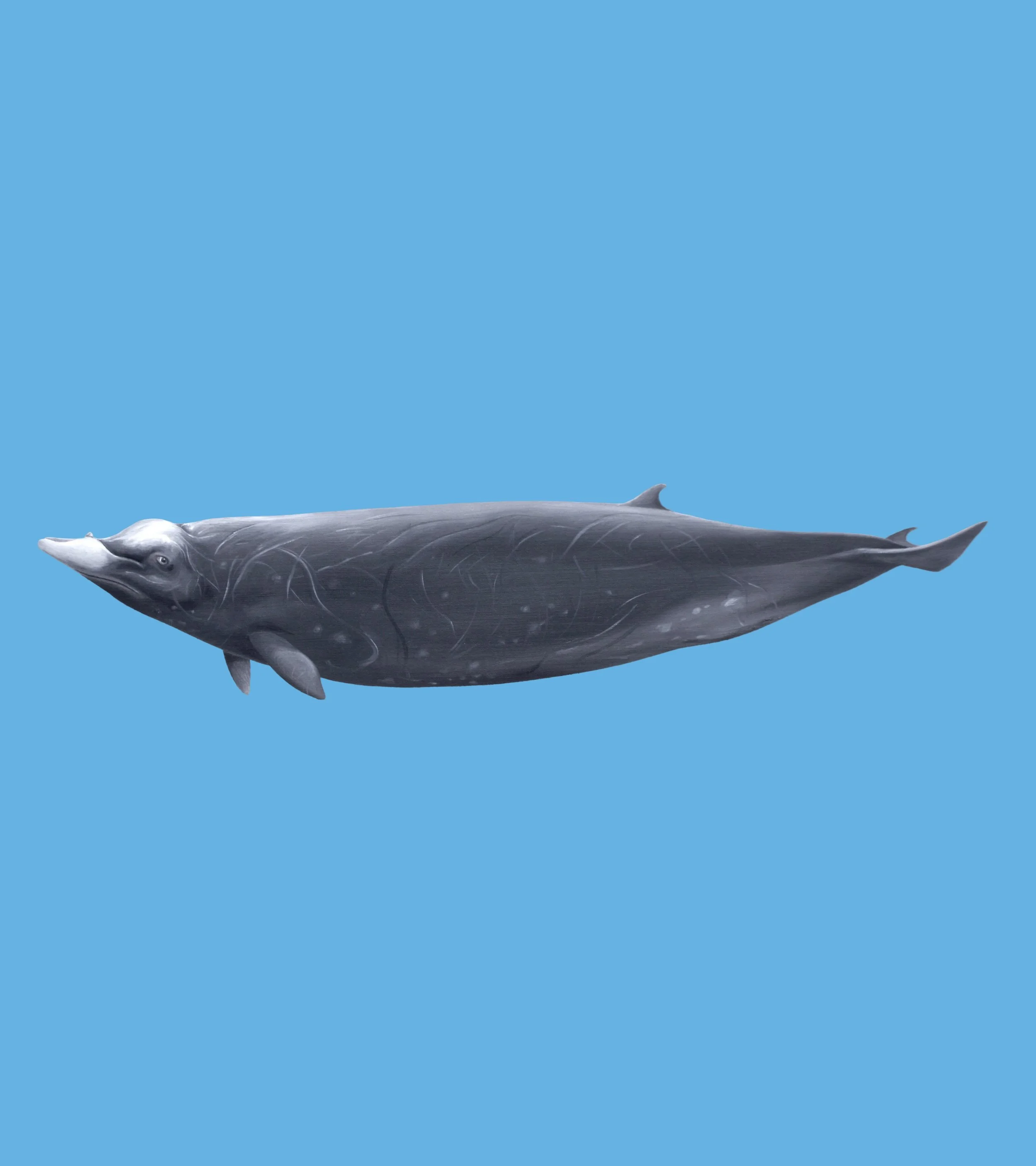
Noyo Center Talks Science: Unlocking the Mysteries of Beaked Whales (Zoom Event)
Art: Mesoplodon carlhubbsi (Hubbs' beaked whale), oil on paperBy Jörg Mazur
Noyo Pelagics Bird and Whale Watching Trips to Sea: Half Day Trip
Noyo Pelagics Bird and Whale Watching Trips to Sea on the Kraken
Monday, September 8, 2025
7:30 AM; half day trip(3-4 hours)
Cost: $125
Departure: Anchor Boats Charters
Noyo North Harbor at Noyo Fish Company
Join Bird and Marine Mammal experts from the Audubon Society and the Noyo Center for Marine Science for Bird and Whale Watching Trips aboard the Kraken of Anchor Charter Boats! Reservations Required.
Kraken Captain Richard is reporting recent whale sightings including Humpbacks and Fin Whales. Dolphins often ride the bow of the boat, too!
French Toast Breakfast in Noyo Harbor
French Toast Breakfast
Sunday, September 7, 2025
10:00 AM - 12:00 PM
Noyo Center Marine Field Station
32430 N. Harbor Drive in Fort Bragg
$25
Includes French Toast and Choice of Sausage or Fruit Side
*Vegan option available
Coffee or tea is included in price
Mochas, Lattes, Juice and extra side dishes
available for purchase
Special Thanks to our Sponsors at Thanksgiving Coffee and Roundman’s Smokehouse
Noyo Pelagics Bird and Whale Watching Trips to Sea: Full Day Trip
Noyo Pelagics Bird and Whale Watching Trips to Sea on the Kraken
Sunday, September 7, 2025
7:30 AM; full day trip(7-8 hours)
Cost: $185
Departure: Anchor Boats Charters
Noyo North Harbor at Noyo Fish Company
Join Bird and Marine Mammal experts from the Audubon Society and the Noyo Center for Marine Science for Bird and Whale Watching Trips aboard the Kraken of Anchor Charter Boats! Reservations Required.
Kraken Captain Richard is reporting recent whale sightings including Humpbacks and Fin Whales. Dolphins often ride the bow of the boat, too!
Noyo Pelagics Bird and Whale Watching Trips to Sea: Half Day Trip
Noyo Pelagics Bird and Whale Watching Trips to Sea on the Kraken
Friday, September 5, 2025
7:30 AM; half day trip(3-4 hours)
Cost: $125
Departure: Anchor Boats Charters
Noyo North Harbor at Noyo Fish Company
Join Bird and Marine Mammal experts from the Audubon Society and the Noyo Center for Marine Science for Bird and Whale Watching Trips aboard the Kraken of Anchor Charter Boats! Reservations Required.
Kraken Captain Richard is reporting recent whale sightings including Humpbacks and Fin Whales. Dolphins often ride the bow of the boat, too!
Noyo Center Science Social and Presentation with Kyle Emery: Kelp Forest and Sandy Beach Connectivity Fuels the Coastal Food Web
Kelp Forest and Sandy Beach Connectivity
Fuels the Coastal Food Web
Guest Presenter: Kyle A. Emery, PhD
Assistant Researcher
Marine Science Institute
University of California, Santa Barbara
Thursday, August 28, 2025
Noyo Center Marine Field Station
32430 N. Harbor Dr., Fort Bragg
5:00 Happy Hour (Wine, beer, and soft drinks)
6:00 Presentation Begins
Maintaining ecosystem connectivity is a key for the resilience of ecosystems to climate change. The largest observed cross-ecosystem fluxes are from marine to terrestrial systems, consist of exported primary production, and are driven by currents and tides. An exceptional example is the subsidy of organic matter exported by highly productive nearshore kelp forests to sandy beaches. Kelp exports from nearshore kelp forests to beaches support the biodiversity and ecosystem functioning of sandy beaches, as well as fuel highly productive beach food webs. Kelp wrack inputs to beaches are highly dynamic. Here, we utilized a kelp tagging experiment, local (100 m) to regional (100 km) scale measurements of kelp inputs, and nearshore kelp supply to determine the spatial relationship between beaches and kelp forests and the impacts on the animals which utilize these kelp inputs.
There is no charge for this event
but please let us know you are coming:
Kyle Emery, PhD, is Research Faculty at the University of California, Santa Barbara. His research program is focused on quantifying and understanding the ecological implications of coastal ecosystem connectivity, particularly between kelp forests and sandy beaches, and how the impacts of climate change can alter these dynamics via changes to food webs and community composition. His research is also focused on measuring the attributes of and changes in coastal habitats including kelp forests, rocky intertidal, sandy beaches, and dunes using remote sensing (drones, satellite imagery) approaches.

Noyo Center Talks Science: Beyond Pacific Tides: How Technology Has Provided a Window into the Secret Life of Marine Mammals
Noyo Center Talks Science:
Beyond Pacific Tides: How Technology
Has Provided a Window into
the Secret Life of Marine Mammals
Originally Broadcast Wednesday, August 20, 2025
The 2024 Ricketts Award recipient Dr. Daniel P. Costa (University of California Santa Cruz) is our guest presenter and will discuss how technology has provided insights into the behavior and physiology of marine mammals in nature.
The Ed Ricketts Memorial Lecture was created to honor scientists who have exhibited exemplary work throughout their career and advanced the status of knowledge in the field of marine science. The first award was presented in March 1986. Recipients are selected by the Monterey Bay National Marine Sanctuary Research Activity Panel.
For lecture abstract and history of the Ed Ricketts Memorial Award, please visit this website.
There is no fee for our science talk presentations, but your donations help to support the resources it takes to bring you these programs and speakers.
Noyo Pelagics Science at Sea on the Kraken: Half Day Trip
Noyo Pelagic Science at Sea
on the Kraken
Noyo Canyon Mammals and Birds
Friday, August 15, 2025
7:30 AM; half day trip(3-4 hours)
Cost: $125
Departure: Anchor Boats Charters
Noyo North Harbor at Noyo Fish Company
Join Bird and Marine Mammal experts from the Audubon Society and the Noyo Center for Marine Science for Bird and Whale Watching Trips aboard the Kraken of Anchor Charter Boats! Reservations Required.
Kraken Captain Richard is reporting recent whale sightings including Humpbacks and Fin Whales. Dolphins often ride the bow of the boat, too!
Noyo Pelagics Science at Sea on the Kraken: Full Day Trip
Noyo Pelagic Science at Sea
on the Kraken
Deepwater Pelagic Birds
Friday, August 15, 2025
7:30 AM; full day trip(7-8 hours)
Cost: $185
Departure: Anchor Boats Charters
Noyo North Harbor at Noyo Fish Company
Join Bird and Marine Mammal experts from the Audubon Society and the Noyo Center for Marine Science for Bird and Whale Watching Trips aboard the Kraken of Anchor Charter Boats! Reservations Required.
Kraken Captain Richard is reporting recent whale sightings including Humpbacks and Fin Whales. Dolphins often ride the bow of the boat, too!

